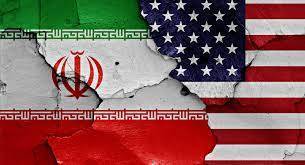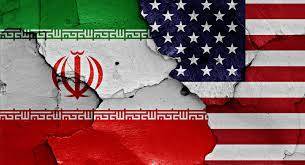Hezbollah's insistence on tying the fate of the southern Lebanese front to the end of the Israeli war on Gaza, since it ignited this front under the guise of distracting Israeli occupation forces and supporting the Palestinian people following the Al-Aqsa Flood operation, is not coincidental. Rather, it carries an underlying goal that is not publicly disclosed, although it presents itself as continuing solidarity with the Palestinians and standing by them in the face of Israeli assaults, massacres, and widespread displacement campaigns, as reported by "Al-Liwaa."
As time passed and the Israeli war on Gaza prolonged, the party not only linked the calm in the south to the conclusion of the Gaza war, but also tied the course of resolving the presidential election crisis and electing a president to the end of this war. At times, this involved distractions due to ongoing military confrontations with Israeli occupation forces, and at other times, a dismissive and insincere approach to local and external initiatives and movements aimed at finding suitable solutions for the presidential vacuum and electing a president. The outcome remains the same: Lebanon remains without a president, and the deteriorating political, economic, and living conditions continue to press upon the country.
After the scenario of Iran's blatant response to Israel for destroying the Iranian consulate building in Damascus and killing prominent IRGC officials, and amidst a noticeable Iranian-American harmony expressed by several officials in Tehran, the party's goal of insisting on linking the fate of the southern Lebanese front to the end of the Israeli war on Gaza became clearer. This is to exploit the heated southern front as leverage for the Iranian negotiator in discussions with the United States regarding the anticipated settlement in the region following the conclusion of the Gaza war, which centers around Iran's role and its future sphere of influence in the area.
In conclusion, the party that opened the southern front with Israel seven months ago, independent of the state and the Lebanese people, did so on an entirely Iranian decision, contrary to all denial methods. The insistence on linking the calm in the south to the end of the Gaza war, after all that has transpired in recent months, simply means tying the fate of the multifaceted Lebanese crisis to the anticipated understanding or settlement between Washington and Tehran and its outcomes and implications for the region.
Therefore, Lebanon and the Lebanese have no choice but to wait and explore the course of this settlement and its intricacies, monitoring its potential impact on resolving the escalating crisis in Lebanon, and bracing for its repercussions while fearing that it might be at the expense of their country. It seems likely that this will be postponed until after the upcoming American presidential elections, unless the American administration takes decisive action to end the Gaza war as soon as possible, according to "Al-Liwaa."




